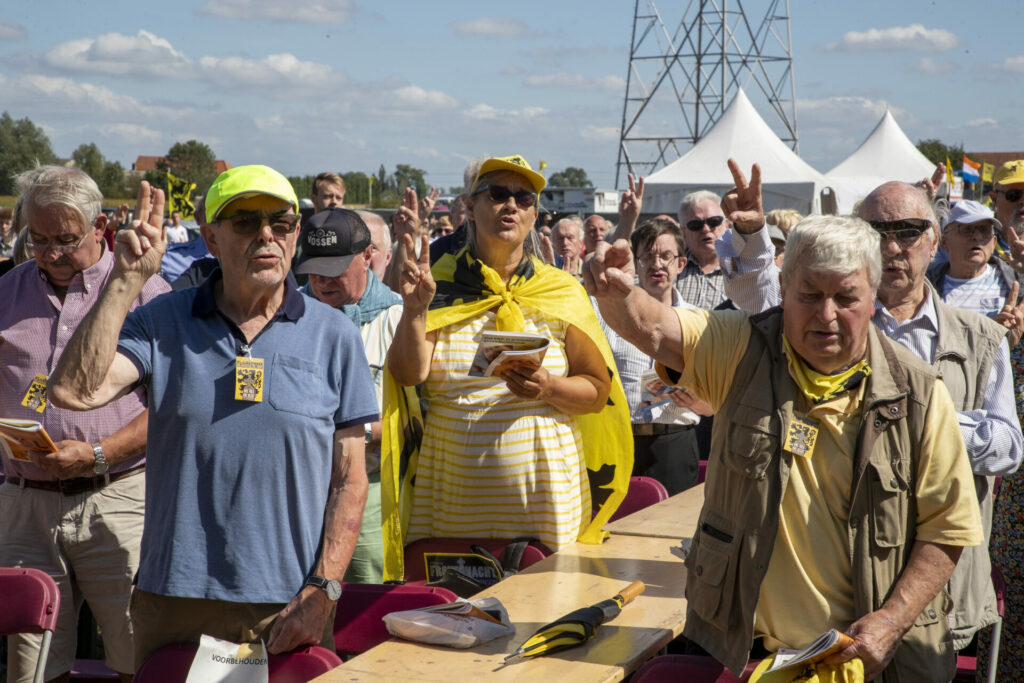A slight majority of surveyed Belgians have said they prefer authoritarian governance to representative democracy, according to a new survey by Le Soir and RTBF.
In 2017, a previous survey depicted a fragmented Belgian society, with no confidence in its institutions. After five years underpinned by successive crises, the authors of the study revisited the topic in 2022 to delve into how the effects of the pandemic, climate change, war in Ukraine and soaring inflation affected societal views in Belgium.
The new survey revealed that many citizens have lost faith in traditional parliamentary democracy: 70% of respondents would opt for people deciding directly on issues through referendums – compared to 59% in February 2020.
While as many as 69% of respondents have lost confidence in elected politicians, rather craving a strong leader who says he can "restore order" and who "understands the people" – compared to 62% before the pandemic.
Authoritarian leanings
59% of those surveyed do not want an authoritarian leader to be hampered by institutional bodies such as civil servants, journalists, judges, civil society, whistleblowers, academics or activists (compared to 45% before the pandemic). Trade unions and religious institutions would also be shut down.
Worryingly for democrats, the survey showed that the appeal of authoritarianism was linked with the desire for a "homogenous and ethnically pure" nation, a historically far-right propaganda tool.
Pro-authoritarians ideologically blame the ills of society on scapegoats – which today is usually migrants. This is driven by a common tendency to push for a "withdrawal" from the world, and usually forms a central part of the far-right vision to nurture a more inward-looking society.
Related News
- Davos conference fuels viral conspiracy about world domination plot
- A quarter of Flemish people would vote for far-right Vlaams Belang in 2024
- Flemish socialist leader Rousseau gets extra police protection after far-right threats
Indeed, the pandemic and the war in Ukraine appear to have accelerated authoritarian leanings in people. Just before Covid-19 restrictions hit, 22.9% wanted open societies, compared to 45.5% who wanted closed societies, while almost a third of the population (31.6%) were undecided.
After the lockdowns, support for open societies skyrocketed only to plummet again due to the war in Ukraine, the floods and the cost of living crisis.
The last 16 years have seen democracies decline and authoritarian regimes gain momentum, according to American non-profit Freedom House. Since 2021, eight in ten people live in "partly free" or "not free" societies.
Looking forward
The authors of the study believe that, as the Belgian society will face more crises in the future, including further rising costs and inflation, the climate crisis, as well the destabilising effects of a far-right surge across Europe.
A combination of factors and events that suggest citizens will be more afraid and more likely to seek (what they perceive to be) further "protection" through authoritarian governance.
Avoiding divisive and incendiary rhetoric, as well as avoiding a sense of fatalism, will be crucial to counteract these leanings, according to the authors of the study.
Researchers have warned that prevention policies must be better managed and pointed to how political leaders during the pandemic were not capable of enforcing a policy of prevention.
The study's authors recommend listening to the population to better understand their concerns. Citizens must be convinced that open societies give better protection than authoritarian ones.
They insist that there must be belief in the future to stay mobilised, and decreasing a "top down" governance to restore confidence in democracy.
The study was conducted during February 2020, October 2021 and July 2022. The results from the last survey were based on interview with 1,059 people representative of the adult population living in Belgium.
The survey divided Belgian regions as follows: Flanders: 417, Wallonia: 402 and Brussels: 240.

